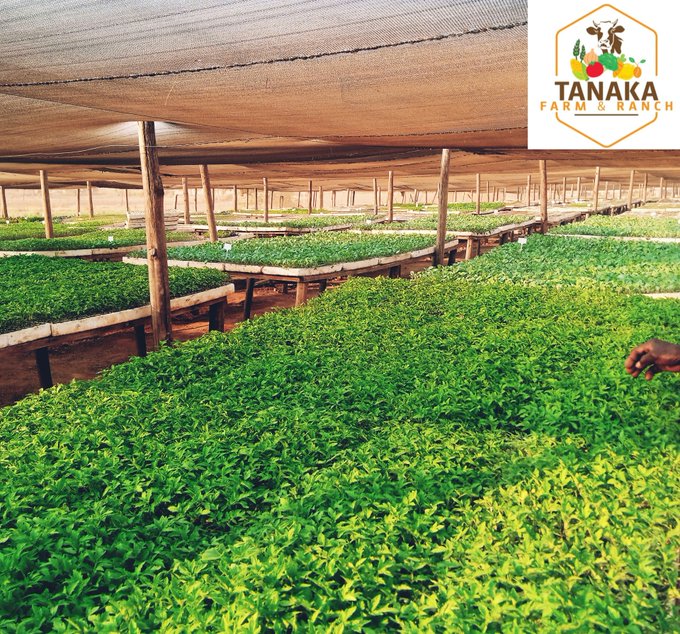|
Getting your Trinity Audio player ready…
|
The Freedom of Rights Under Sovereign (FORUS) Party is proffering ways of making Zimbabwe’s agricultural sector productive so as to boost the economy and ensure the country’s prosperity.
Dr. Emmanuel Katsvamutima, an economic advisor for FORUS Party, in an interview with Spiked Online Media said there is a need to strengthen the security of tenure and legal transfer of land in Zimbabwe.
He said he respects the proposal to compensate former white commercial farmers as a move that puts Zimbabwe in good light on the international relations arena and revealed that as a policy, FORUS Party is not pushing for a new land redistribution exercise but wants co-existence among whites and blacks, be they smallholder, peasant or commercial farmers.
“As FORUS Party, we have a clear position on the land question. People should not be displaced from the land that they were given. There should be co-existence between commercial farmers and peasant farmers to increase productivity and address the supply side of food security and the competitiveness of the country in terms of food exports. We are not pushing for a new land redistribution exercise. We need such synergies and partnerships among farmers so that we achieve the competitiveness of the economy through exports of agricultural products,” Dr. Katsvamutima said.
According to Brian Maguranyanga and the late Professor Sam Moyo, in their policy brief titled “Land Tenure in Post Fast-Track Land Reform Programme Zimbabwe: Key Strategic Policy Development Issues”, land and tenure reforms in Zimbabwe are highly emotive and complex political issues, and closely linked to anti-colonial ideologies that focus on black empowerment and socioeconomic justice.
“Inevitably, one needs to understand the political nature of this issue and the historical context within which racially skewed land and tenure arrangements developed. What emerged from the colonial land policies was a dual land tenure system, socially engineered to create and distribute opportunities to whites. Such racially based ‘land grabs’ served to entrench white political and economic interests, while depriving Africans of socioeconomic opportunities,” reads a part of their analytical piece.
The late former President Robert Mugabe said the land redistribution exercise was irreversible. The Second Republic under President Emmerson Mnangagwa has agreed to compensate former white commercial farmers who were dispossessed of their land. There is currently a “use it or lose it” policy on the land since some beneficiaries of the land are leaving the farms to lie fallow without any meaningful production taking place.
FORUS Party believes contract farming is a potential panacea towards helping farmers to get access to markets and boost their incomes while ensuring that agribusinesses have a stable supply of produce that meets their quality standards.
“Instead of facing the possibility of losing a farm due to failure to make it productive, contract farming is a fruitful consideration. Smallholder farmers failing to raise capital to buy inputs can join hands with established farmers or companies who have the financial muscle to make the farm productive. Through such a partnership, farms can become productive and have bumper harvests.
“The farmer will have the advantage of being linked to lucrative markets locally and internationally. There is a high demand for Zimbabwe’s organic food products in Asia, America, the Arab world and Europe. Thus co-existence among farmers is very productive and so is contract farming. Contract farming is important because it gives smallholders a stronger negotiation power in the market,” Dr. Katsvamutima said.
He said it is important to retain all farmers be they big or small enterprises since smallholders farmers are major investors in the agricultural sector, in particular taking into account those family farms that invest their own capital and labour in their agricultural activity. In addition, public investments that match investments by smallholders are important for fighting poverty and hunger.
FORUS Party believes that supporting investment in agriculture is one of the most effective strategies for economic growth and reducing hunger. The party said investment needs to contribute to food security nutrition, gender equality, women empowerment, eradication of poverty and ensures safe and healthy food systems.
FORUS party is of the view that the participation of women in agriculture is critical since they are resilient and form the majority of the labour force in that sector.
“Women are the backbone of the smallholder agricultural sector. They feed the nation by being the main producers and processors of food. As FORUS Party, we advocate for equal access to and ownership of land among men and women in Zimbabwe. We are calling on stakeholders to assist women landowners with inputs like seed and fertilizer, and give them credit to buy machinery and equipment that maximises farm productivity,” said Manyara Irene Muyenziwa, the FORUS Party President.
